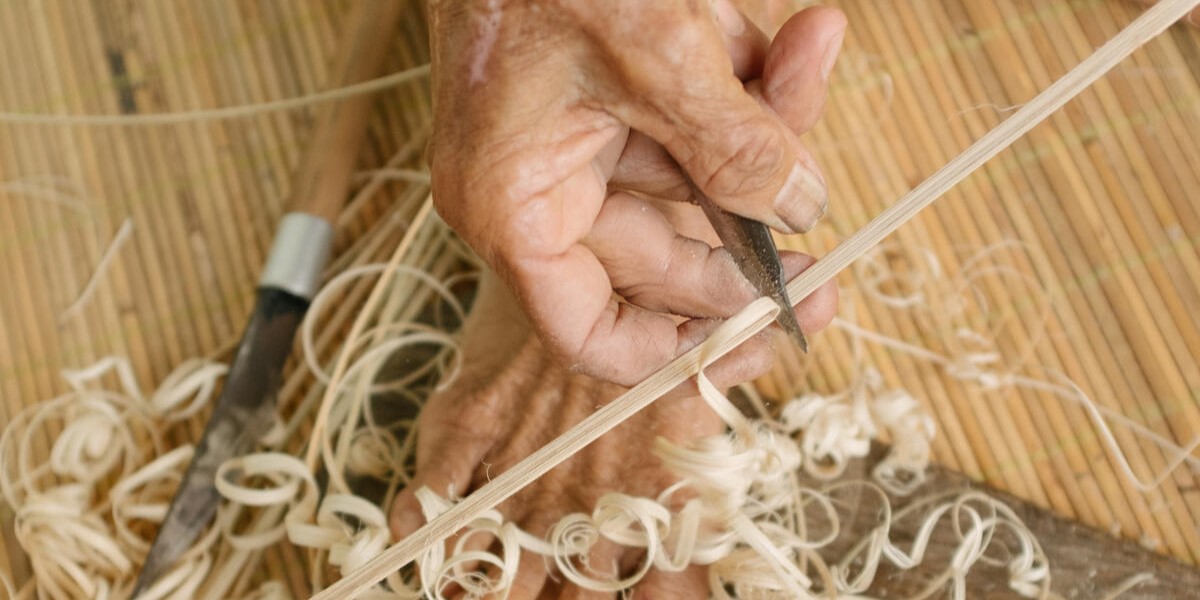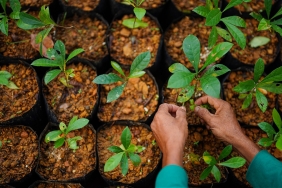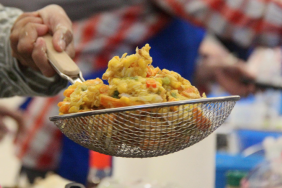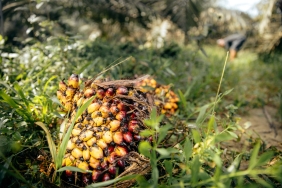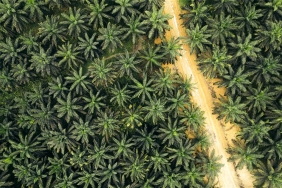SUPERMARKETS HAIL "GREEN AND FAIR PRODUCTS"
By: Masayu Yulien Vinanda
The superior quality of “Green and Fair Products,” the eco-friendly products from the community around conservation area have been acknowledged by one of the major players of retail business; PT. Supra Boga Lestari, a company which operates Ranch Market and Famers Market. Therefore, starting on 31 October 2010 to 6 January 2011, many outlets of those two supermarkets offer variety of those “noble-mission” products.
President Director of PT Supra Boga Lestari Nugroho Setiadharma is optimistic that the organic products respecting the “fair” value will be well accepted by both Ranch Market and Farmers Market customers. “Besides natural and chemical-free, they are also local high-yealding variety. From the quality side, they are undoubtedly good products. I strongly believe that these products will get positive response from the customers,” he said on Sunday (31/10) in Ranch Market kitchen, Pondok Indah, South Jakarta.
Speaking at the opening “Kelas Memasak Green and Fair Products (literally meaning Green and Fair Products Cooking Class),” Nugroho highlighted the important role of market sector in promoting local products. Accroding to him, Green and Fair Products, the WWF-Indonesia’s initiative, needed to be supported by other business players to ensure that the local products as well as the nature are all well-preserved.
He also emphasized that the action of providing Green and Fair products in the outlets is an effort to reduce middle man phenomenon which has made Indonesian farmers suffer great loss. “The farmers are not empowered with the knowledge and don’t have direct access to the market. On the other hand, middlemen are actively trying to engage us. Therefore, it is time for us, the retail business player, make direct contact with the farmers. In other words, we shorten the market chain. As a result, the farmers will benefit more, and so will the supermarket itself. W can sell a lot cheaper products,” he added.
Meanwhile WWF-Indonesia Marketing and Communicatin Director Devy Suradji, encouraged tens of the “cooking class” participants who were mother-dominated, to start implementing green consumption or favoring “green” and “fair” products. She said that various “green” products were getting easy to get. Therefore, automatically, public will have the opportunity to take part in protecting the environment.
“It is one example of ways to contribute saving the planet. For example, of we chose sialang honey from Tesso Nilo, it meant that we has helped protect Sumatran tiger. Moreover we also has helped the economy of community producers since the sialang honey is one of the major income resources for the people living around the Tesso Nilo forest beside rubber sap,” she continued.
Besides sialang honey from Tesso Nilo, Riau, through “Green and Fair Products” initiative, WWF-Indonesia also helps develop other products from community producers around conservation area where WWF operates. They are “Kuyungarang” robusta coffee from Bukit Barisan Selatan NP in Lampung, “Walabi” cajuput oil from Wasur NP in Merauke, “Tana Tam” Adan rice from Borneo Highlands, “Mt. Mutis” forest honey (East Nusa Tenggara), rhino carvings from Ujung Kulon NP, products made of aloe vera from Sebangau NP, “Banuaka” beads from Betung Kerihun NP in West Kalimantan. However, other initiatives from WWF’s sites have also been developed to follow the success of the eight-featured products presented during the “Green and Fair Products” campaign this year.

